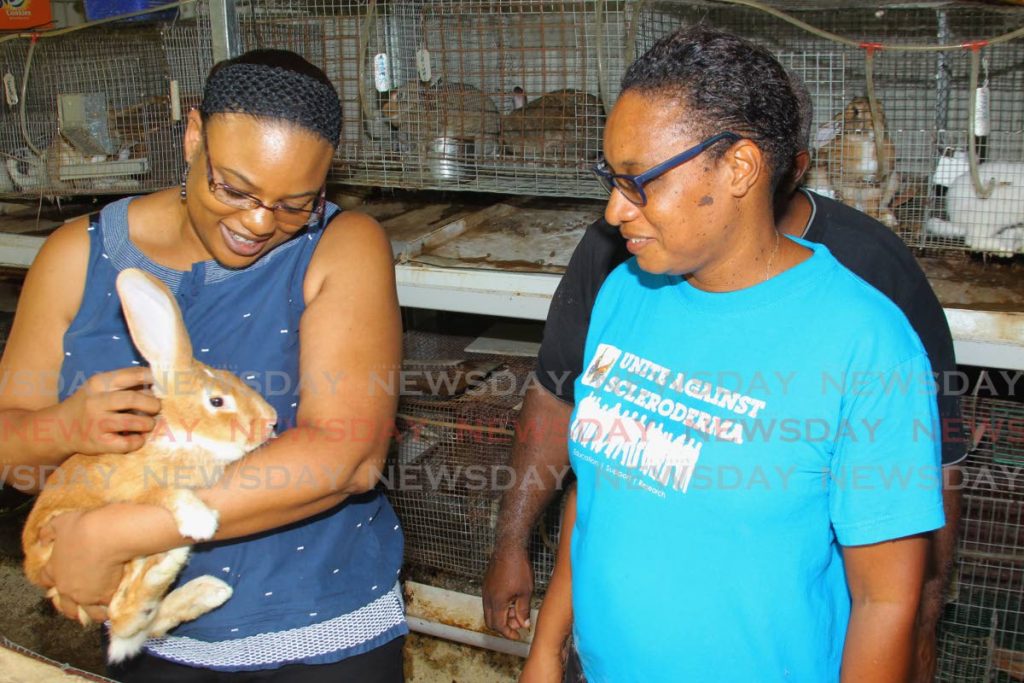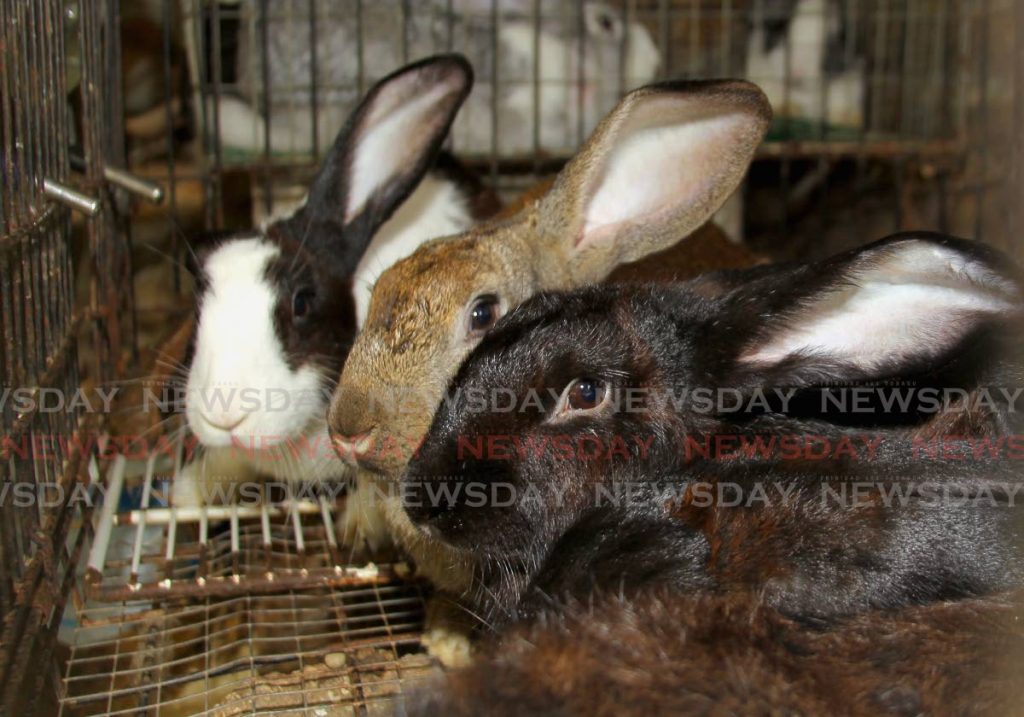Fate leads couple down the rabbit hole

They found a rabbit by accident, bought more as pets, and now husband and wife entrepreneurs Sherry Beach-Sealey and Roger Sealey have a successful farm where they sell rabbits as pets, breeders, and for meat.
Roger recounted his initial encounter with rabbits, which he described as the work of fate. He said in 2016 he went to help an aunt whose dog kept barking at something in the abandoned yard next door. On checking he discovered it was a rabbit but instead of running, it came to him, sat down and looked at him.

They already had many pets – seven dogs, an iguana, birds, tilapia – so they tried to find the animal’s owner but no one came to claim it. Two weeks later while driving through San Fernando, a rabbit ran in front of his car and sat in the drain. They took it as a sign that they should have these rabbits and later bought two more to keep the other two company.
They built one cage but needed more so they checked the newspapers and found some for sale in San Fernando near to where they found the second rabbit. Then they had more cages than rabbits and so decided to get more of the animals.
Roger contacted his brother who used to rear rabbits to find out where to he coudl get a male rabbit. They went to Ruben Allen in Manzanilla and got a male breeder at a low cost. Allen also traded another male for some tilapia. However, they still did not know how to properly care for their rabbits. “We went online and saw the rabbit production course from the Ministry of Agriculture and we figured it made sense to go to find out how to best care for them. We went to the course and got mind-blown. We realised things could happen here, this is something we could work with, this could be a business,” Sherry told Sunday Newsday.
She said they learned about proper housing, feeding, what affects reproduction, management of breeding, rabbit health, record keeping, and other simple things that they would not have known to consider.

She said they were excited after completing the rabbit course in March 2018 and decided to breed the rabbits to sell the babies, or kits, to pet shops. While they decided to stick with that plan, they were open to other ideas and so they did the agri-business management course, forage management, budding and grafting, and many others.
“We realised it is really a good thing. I don’t know why more people don’t get up and do these free courses,” Roger said.
So, in February 2019, they started the Sherojo Rabbit Farm in Manzanilla. At the moment they have 50 breeding females, 16 breeding males, and many other rabbits.
While the sale of the kits and breeders were straightforward, the meat was more work. They said the meat was processed and sold skinned or roasted (with skin). They also cut the rabbits up in several ways depending on the intended preparation.
There was a BBQ cut, grill cut, curry/stew cut, and geera cut. Both with and without skin called skinned and roast
Sherry mostly runs the business as Roger is a teacher, but his contribution is significant. He said he is developing their own digital record-keeping system and they intend to market it one day. He also makes rabbit ham and they are considering making more for sale in July or for Christmas. The couple also recently teamed up with Nicholas Licorish to produce seasoned packs in which the meat was cut up, vacuumed sealed and labelled.

Roger said they also think it is good idea to have a business they can leave to their son, 14, so he will have an option if he does not want to take a traditional career route. He too did the rabbit course and is very involved in the business.
Sherry said he often picks up on issues his parents may have missed, he cares for the animals and their health, and will be responsible for setting up and maintaining the business’ Instagram account.
However, rabbit farming is not just about playing with the fluffy creatures. Roger said there are challenges including irresponsible hunters who let their dog run loose. He said one got into their shed and killed several of their rabbits, including some of their expensive breeding rabbits.
In addition to the fact that rabbits come down with diseases easily and can die quickly, he said they are very sensitive to loud noises. He lamented that from Old Year’s through New Year’s Day this year, he knew of other people in the industry who lost between $20, 000 to $30,000 in breeding stock when the rabbit died because of the noise from fireworks and firecrackers.
Another challenge is getting quality feed. He said because they attended the ministry’s foraging course, they produced as much of their own forage material as possible rather than buying chemical-laden feed. He said they used as much organic material as possible but even some of the raw materials are hard to find.
To further assist with this problem, they intend to attend the ministry’s composting course to help them grow stronger, more nutritious plants to keep their rabbits healthy.


Comments
"Fate leads couple down the rabbit hole"